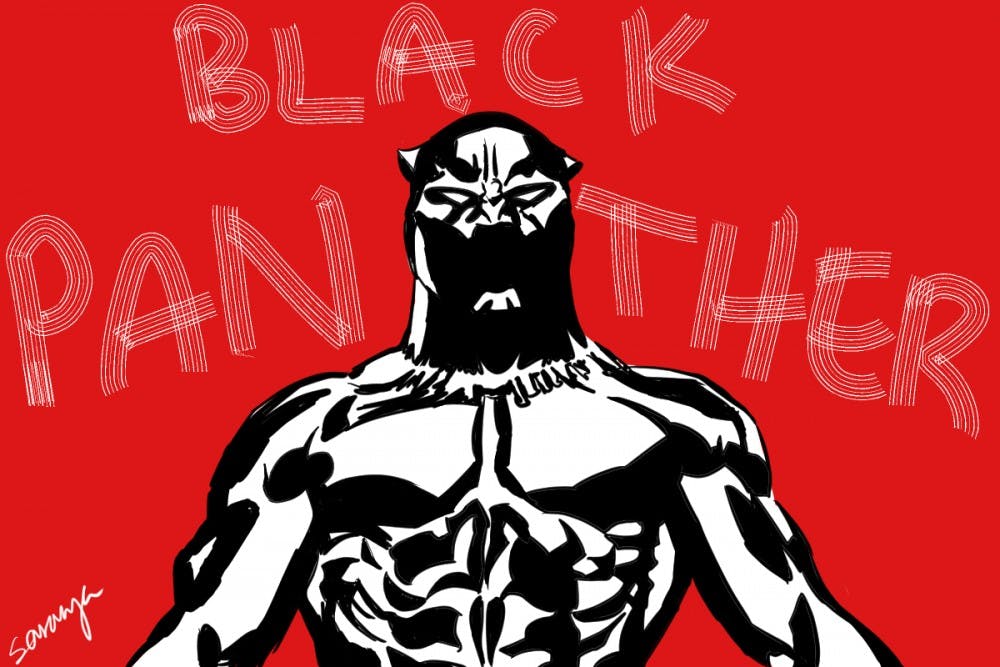Black Panther was everything I ever needed. Aside from simply being a beautiful movie with dynamic characters, a perfect soundtrack, and an accompanying Kendrick album, it’s a cultural watershed for the black community. Even now, as I embark on writing this piece, I’m struggling to calm the flood of emotion rising up in my chest. Thinking about it and how it was such a monumental achievement for black people, especially black people in America, is a wave of awareness I’m unfamiliar with. I worry I may never be able to fully express the experience of being black while watching Black Panther. This movie felt like it was for me. The people on the screen looked like me, and they each represented the strength and beauty of blackness in ways I’ve never seen portrayed on the big screen.
I’m sure black people all around are sharing this mishmosh of feelings during this strange pinpoint of our history. I’m happy, and proud, and in despair, and heart–broken, and tired, and energized all at the same time. Black Panther is thought provoking in a truly novel way and I’ll do my best to break some of it down—starting with the villain.
In a way, we can all identify with Killmonger. Yes, he’s horrible. He shoots his own girlfriend in cold blood, and we don’t even see him mourn her. But he was created by a flawed system. After being abandoned as a child in a place where he didn’t belong, trapped in a country where a little black boy is only barely welcome, he morphs into a horrible villain.
Are we, as an audience, meant to be surprised by this? We, as a black audience, feel sorry for him because we can identify with him—he’s an angry black man, and justifiably so. His actions and methods are reprehensible, but his arguments make sense. This is a fact that is hard to deny—purposefully so.
He’s been looking for somewhere he could be welcome—a place where he would be home. Instead, he walked around, “a kid in Oakland...believing in fairytales.” Killmonger makes us think about where home really is, and we identify with his search for one.
The Black Panther is a very different man, though. The audience sees how good he is again and again; we watch this hurt him again and again. “It’s hard for a good man to be king.” It seems like he’s supposed to represent a nonviolent path to freedom. He’s stern and, in the end, has the same goals as Killmonger. They don’t differ in value, but rather, in method.
What I learn from his character is the importance of allyship. As overdone as this is, revolution couldn’t happen alone, and he isn’t successful working alone. It’s only with a strong, loyal team behind him that he can attain his goals, regardless of how powerful he is.
Then there’s Wakanda.
The concept of an African nation untouched by European colonization is so unbelievably heart–wrenching. What if my ancestors weren’t torn away from their homes? What if they had the chance to live, thrive, and prosper? Part of me is proud, because I know my worth, and I know black people have the potential to be excellent. Part of me is angry, because that was stolen from me. There were white people who thought it was their right to own me and people who look like me. I was reminded of how disgusting that is. My people were enslaved and there was no one to help, no way to escape bondage.
Now, in the modern day, we’re still in bondage. People who look like me are scattered all across the world, and they’re suffering because we live in a state where the lines were drawn to benefit the fair–skinned. Structures of power based on color are so deeply embedded into our world that it probably would take a serendipitous hidden African nation and a full–blown revolution to free us.
I was shocked by how many unexpected political themes Black Panther brought up. It made me reflect on my life and the state of the world and my culture today. Black Panther repeatedly tore my heart to pieces and put it back into different shapes. The most heart–wrenching moment in the movie, in my opinion, was probably Killmonger’s death. He makes a powerful choice. It’s a line that’s been echoing in my mind since I watched it for the first time. “Bury me in the ocean, with my ancestors who jumped from ships because they knew death was better than bondage.”







